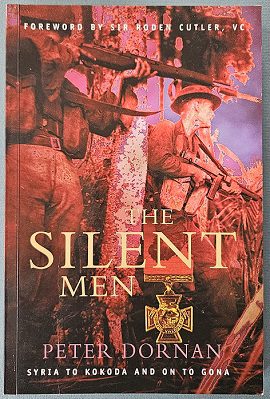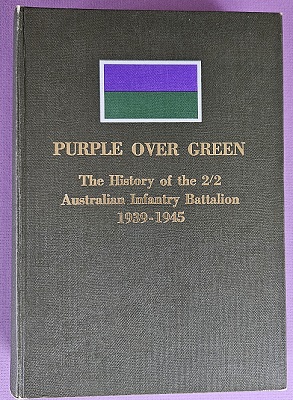Description
Title: Nothing over Us – The Story of the 2/6th Australian Infantry Battalion
Author: Hay, David
Condition: Very Good +
Edition: 1st Edition
Publication Date: 1984
ISBN: 0642994706
Cover: Hard Cover with Dust Jacket – 604 pages
Comments: The detailed history of the 2/6th Battalion from 1939 to 1945.
The story of the 2/6th Australian Infantry Battalion, was researched and written by Sir David Hay, has been eagerly awaited. It faithfully records the birth of our Battalion and its proud record of service in the Middle East, Greece and Crete, Ceylon and Papua New Guinea. Although the unit was raised in Victoria, it received many reinforcements from Tasmania while still in the Middle East and later many more joined from other Sates. Our first real taste of army life was at Puckapunyal, under the leadership of Lieutenant Colonel Arthur Godfrey, MC, supported by Major Hugh Wrigley, MC, Second in Command and later our Commanding Officer in Greece.
We became determined to give our best, so that a battalion was born on our service with pride. We remember our comrades with affection, particularly those who died in the service of our country. The narrative will rekindle memories of our adjustment to army life and ways – memories of those long desert marches, of life in the jungle where wet clothes and hard living became the norm, but above all, of the comradeship we shared and the faith we had in each other.
Many will think back to the defeat of the Japanese at Wau, highlighted by Bill Sherlock’s A Company stand at Wandumi and how the initiative passed to us as we became quietly confident of our ability to handle the enemy. As one very senior General put it, ‘The 17th Brigade were the first allied troops to gain moral superiority over the Japanese’. We knew that there was a long hard task ahead, but we became sure of ultimate victory. I remember, with admiration, how all the men adjusted to life in the jungle, to the delays in air dropping which often forced short rations, to wearing wet clothes for days and nights on end and even going without socks, their bare feet stained brown from wet boots. An old soldier would have been amazed to see the easy way they carried on without supervision but with discipline. They understood what the job required and they became masters of the jungle and of their craft. A senior military observer said of them, ‘You are not professional soldiers but you are professional men of war’.
Includes Nominal Roll





